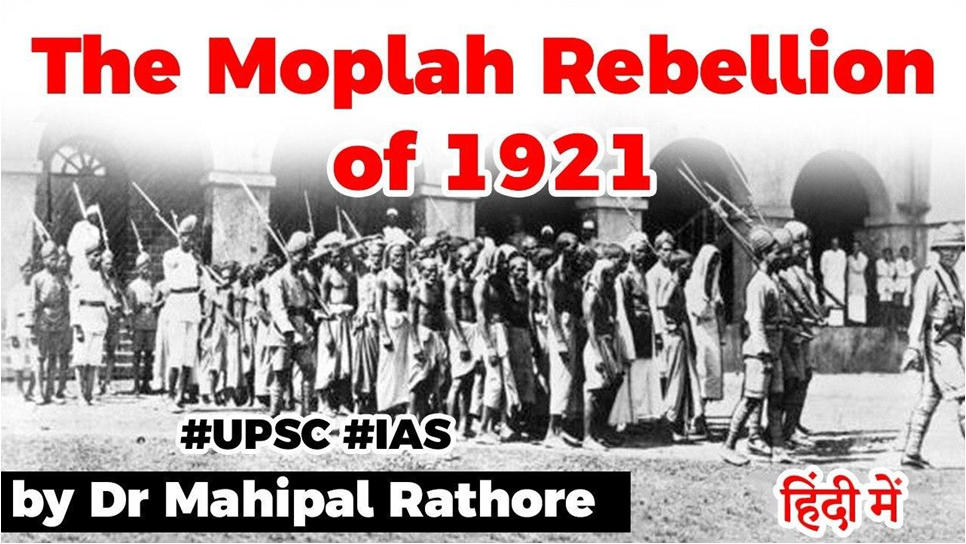Table of Contents
The Malabar Rebellion of 1921
- Mopilla/Moplah/Mappilas were the Muslim tenants (peasants) inhabiting the Malabar region where most of the landlords were Hindus.
- An armed uprising against
- British rule
- Landlords


Historical Background
- In Malabar region ,the Jenmis, mainly the Namboodari Brahmins and Nair chieftains, were given hereditary land grants.
- The Mappilas (Muslim tenants) had expressed their resentment against the oppression of the landlords , many times since 1836.
- Lack of security of tenure
- High rents
- Renewal fees and other oppressive exactions.
The Non Co-operation and Khilaafat Movements
- The Mappila tenants were particularly encouraged by the demand of the local Congress body for a government legislation regulating tenant-landlord relations.
- The Mappila movement merged with the ongoing Khilafat agitation.
- The leaders of the Khilafat-Non-Cooperation Movement like Gandhi, Shaukat Ali and Maulana Azad addressed Mappila meetings.
Leaders
- Ali Musaliar
- Variankunnath Kunjahammad Haji
- Kunhi Kader
Protests turn Violent
- After the arrest of national leaders, the leadership passed into the hands of local Mappila leaders.
- Trigger – A police raid on a mosque in Tirurangadi as part of crackdown during Khilafat movement
- August 1921 – the arrest of a respected priest leader, Ali Musaliar, sparked off large-scale riots.

- Initially, the symbols of British authority – courts, police stations, treasuries and offices and unpopular landlords were the targets.
-
Many towns and areas ceased to have any govt authority for months
The Communal Colour
- British declared martial law and repression began in earnest.
- Once the British repression started, the character of the rebellion underwent a definite change.
- Many Hindus were seen by the Mappilas to be helping the authorities.
- The Moplah rebellion started as a fight against the British supported landlords but ended up as large-scale massacre and persecution of Hindus.
- Forced Conversions, Rape of women, killings of children and many other horrific atrocities were committed by the rebels against local Hindus.
- The communalisation of the rebellion completed the isolation of the Mappilas from the Khilafat-Non Cooperation Movement.
- The British Government put down the rebellion with an iron fist, British and Gurkha regiments were sent to the area and Martial Law imposed.
- By December 1921, most resistance had come to a stop
Official stats
- 10,000 Hindus killed by the rebels
- 2337 rebels killed by British forces
- 45,40 imprisoned
- Temples, Churches and many other properties burned down
- Property to the value of £250,000 was destroyed
Nature of the Uprising
- Part of the wider Nationalist movement OR Isolated Agrarian revolt which turned communal

Latest Burning Issues | Free PDF






















 WhatsApp
WhatsApp